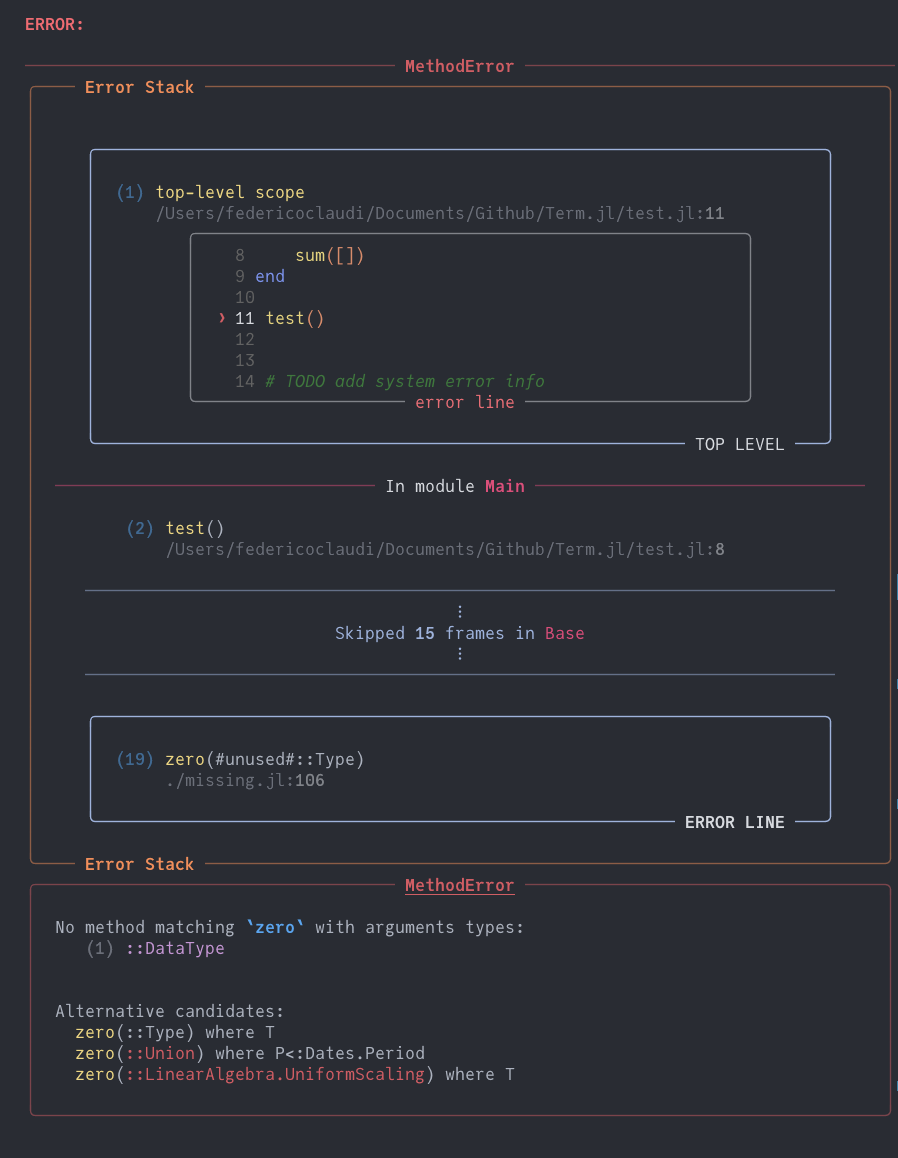Errors
In Logging we've seen how Term can replace the default logging system in Julia to produce stylized logging messages. Term can do the same for error messages and stack traces.
Setting up Term's error handling will change this behavior for any downstream user of your code. While this could be okay, it might be surprising and undesirable for some, so do at your own risk. If you're writing code just for you, then go ahead! Term's error messages look great and hopefully they'll help finding and fixing errors more quickly.
Setting up Term to handle errors for you is very simple:
import Term: install_term_stacktrace
install_term_stacktrace() # entering the danger zone
function test()
sum([])
end
test()

Term is opinionated
In altering Julia's default stacktraces handling, a few choices where made such as: inverting the order in which the backtrace's stack frames are shown and hiding frames from Base or other packages installed through Pkg (similarly to AbbreviatedStackTraces.jl). When installing Term's stacktrace system with install_term_stacktrace, you can use the keyword arguments to alter this behavior
install_term_stacktrace(;
reverse_backtrace = true, # change me!
max_n_frames = 30,
hide_frames = false,
)but you can also do more, if you just want to quickly change some options (e.g. to deal with a particularly though bug). You can set flags to change the behavior on the fly:
import Term: STACKTRACE_HIDDEN_MODULES, STACKTRACE_HIDE_FRAMES
STACKTRACE_HIDDEN_MODULES[] = ["REPL", "OhMyREPL"] # list names of modules you want ignored in the stacktrace
STACKTRACE_HIDE_FRAMES[] = false # set to true to hide frame, false to show all of themfalse